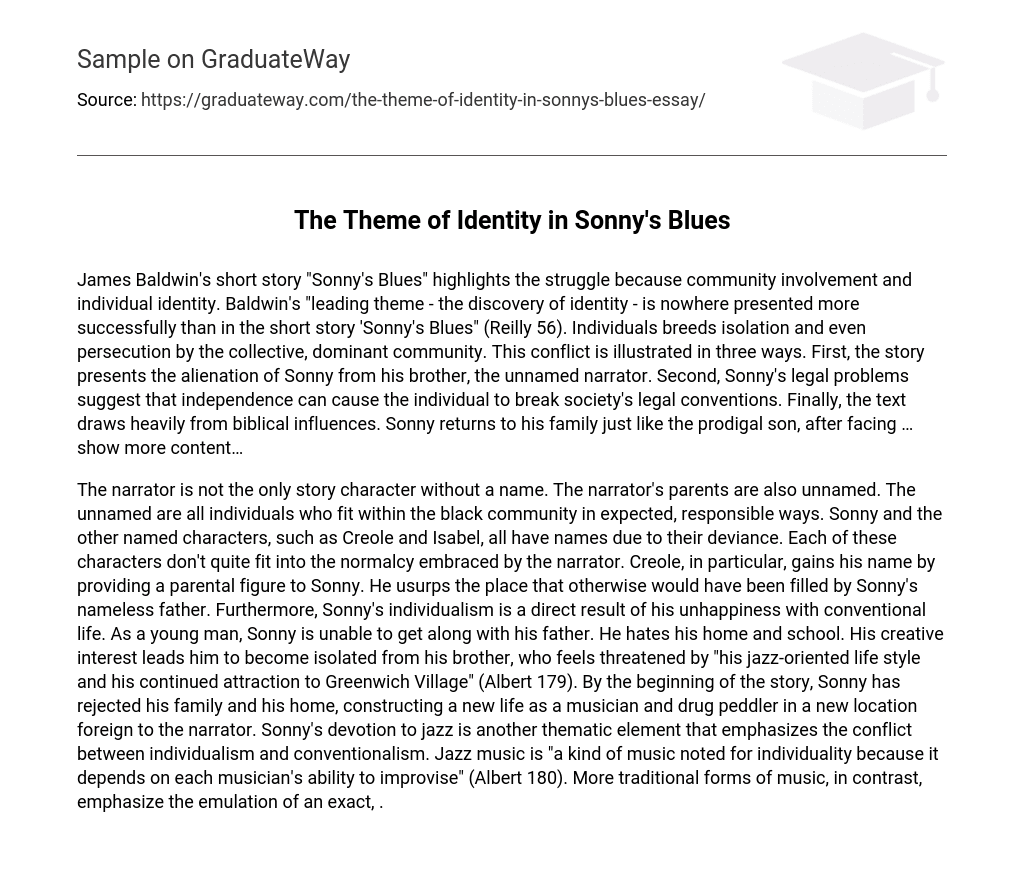James Baldwin’s short story “Sonny’s Blues” highlights the struggle because community involvement and individual identity. Baldwin’s “leading theme – the discovery of identity – is nowhere presented more successfully than in the short story ‘Sonny’s Blues” (Reilly 56). Individuals breeds isolation and even persecution by the collective, dominant community. This conflict is illustrated in three ways. First, the story presents the alienation of Sonny from his brother, the unnamed narrator. Second, Sonny’s legal problems suggest that independence can cause the individual to break society’s legal conventions. Finally, the text draws heavily from biblical influences. Sonny returns to his family just like the prodigal son, after facing …show more content…
The narrator is not the only story character without a name. The narrator’s parents are also unnamed. The unnamed are all individuals who fit within the black community in expected, responsible ways. Sonny and the other named characters, such as Creole and Isabel, all have names due to their deviance. Each of these characters don’t quite fit into the normalcy embraced by the narrator. Creole, in particular, gains his name by providing a parental figure to Sonny. He usurps the place that otherwise would have been filled by Sonny’s nameless father. Furthermore, Sonny’s individualism is a direct result of his unhappiness with conventional life. As a young man, Sonny is unable to get along with his father. He hates his home and school. His creative interest leads him to become isolated from his brother, who feels threatened by “his jazz-oriented life style and his continued attraction to Greenwich Village” (Albert 179). By the beginning of the story, Sonny has rejected his family and his home, constructing a new life as a musician and drug peddler in a new location foreign to the narrator. Sonny’s devotion to jazz is another thematic element that emphasizes the conflict between individualism and conventionalism. Jazz music is “a kind of music noted for individuality because it depends on each musician’s ability to improvise” (Albert 180). More traditional forms of music, in contrast, emphasize the emulation of an exact, .





